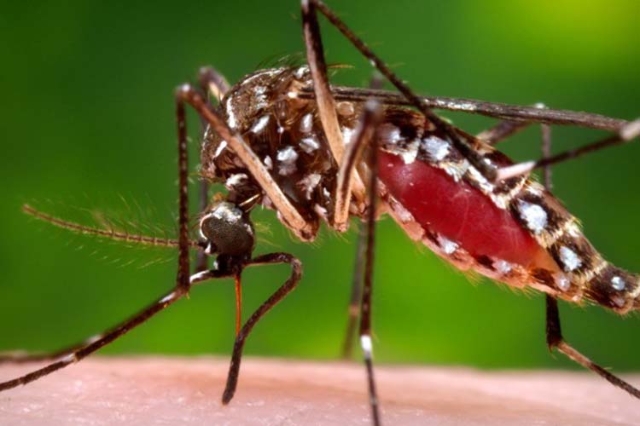Health officials say major Zika outbreak unlikely in Nevada
Health officials say a disease believed to have caused a major increase in birth defects among Brazilian-born babies is unlikely to flourish in Nevada, though travelers could bring it to the state.
As of Thursday, 31 cases of Zika virus disease have been confirmed in the United States, but all are related to travel outside of the country, Southern Nevada Health District Disease Investigation and Intervention Specialist Tony Fredrick said. There are no known cases in Nevada.
Cases have been reported in 11 states, the District of Columbia, 20 countries in South and Central America, Puerto Rico and the U.S. Virgin Islands, according to the Centers for Disease Control and Prevention.
Travel could bring infected people from these regions to the Silver State, said James M. Wilson, director of the Nevada State Infectious Disease Forecast Station at the University of Nevada, Reno.
"I'd be shocked if we didn't have cases of people returning to Nevada who are infected," Wilson said.
Symptoms of the disease include fever, rash, joint pain and red eyes, though some infected with the Zika virus never show symptoms. Symptoms can last up to about a week, and fatalities are rare, according to the CDC.
However, testing indicates Zika could be behind a substantial increase in birth defects in Brazil, and the largest area of concern is the risk of the disease to unborn fetuses, Wilson said.
By the end of 2015, as many as a million cases of Zika were suspected in Brazil, said Lyle Petersen, director of the CDC's Division of Vector-Borne Disease.
It's unlikely a similar outbreak would occur in Nevada, Wilson said.
"It'd be highly unlikely it'd be transmitted here because you need a tropical climate," he said.
Trapping efforts in Southern Nevada have not shown any sign of the Aedes species of mosquito, which is believed to have been the primary cause of most recent infections, Fredrick said.
There are signs that other types of mosquitoes may be spreading the virus as well, Wilson said.
Blood from possibly infected patients in Southern Nevada is sent to the CDC, where it's tested, Fredrick said, describing the health district's protocol.
He suggested people experiencing symptoms of the virus visit a physician or an urgent-care clinic.
Travelers visiting countries outside of the United States should carry mosquito repellent, and fertile women and their significant others should use contraceptives in countries where the disease is present, he said. Pregnant women have been advised to consider postponing travel to countries where the virus is prevalent.
Contact Pashtana Usufzy at pusufzy@reviewjournal.com or 702-380-4563. Find her on Twitter: @Pashtana_U

















